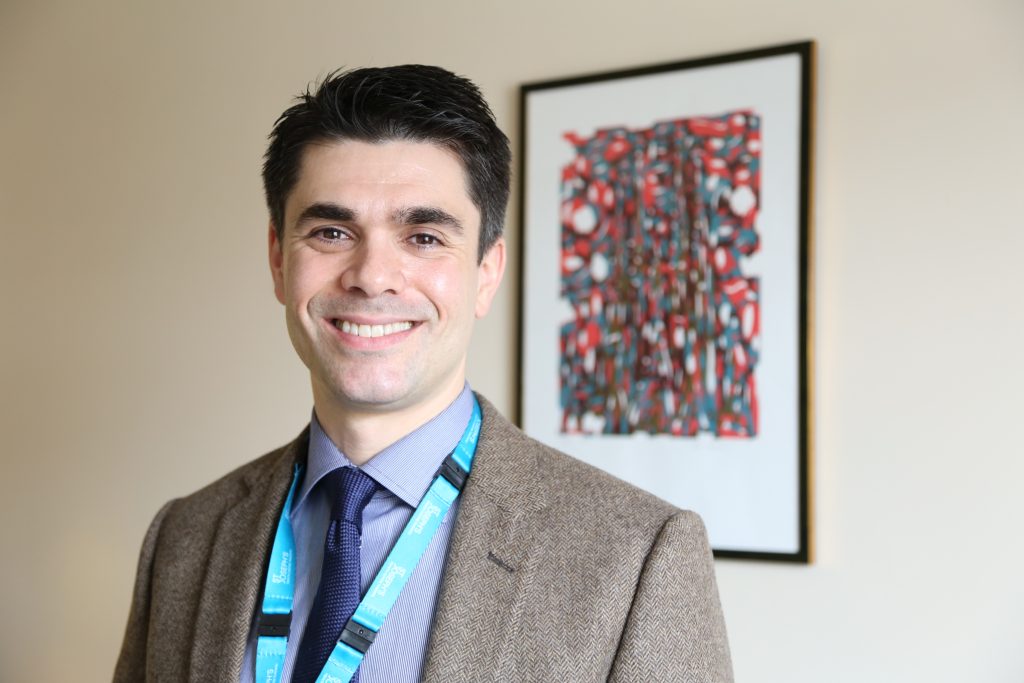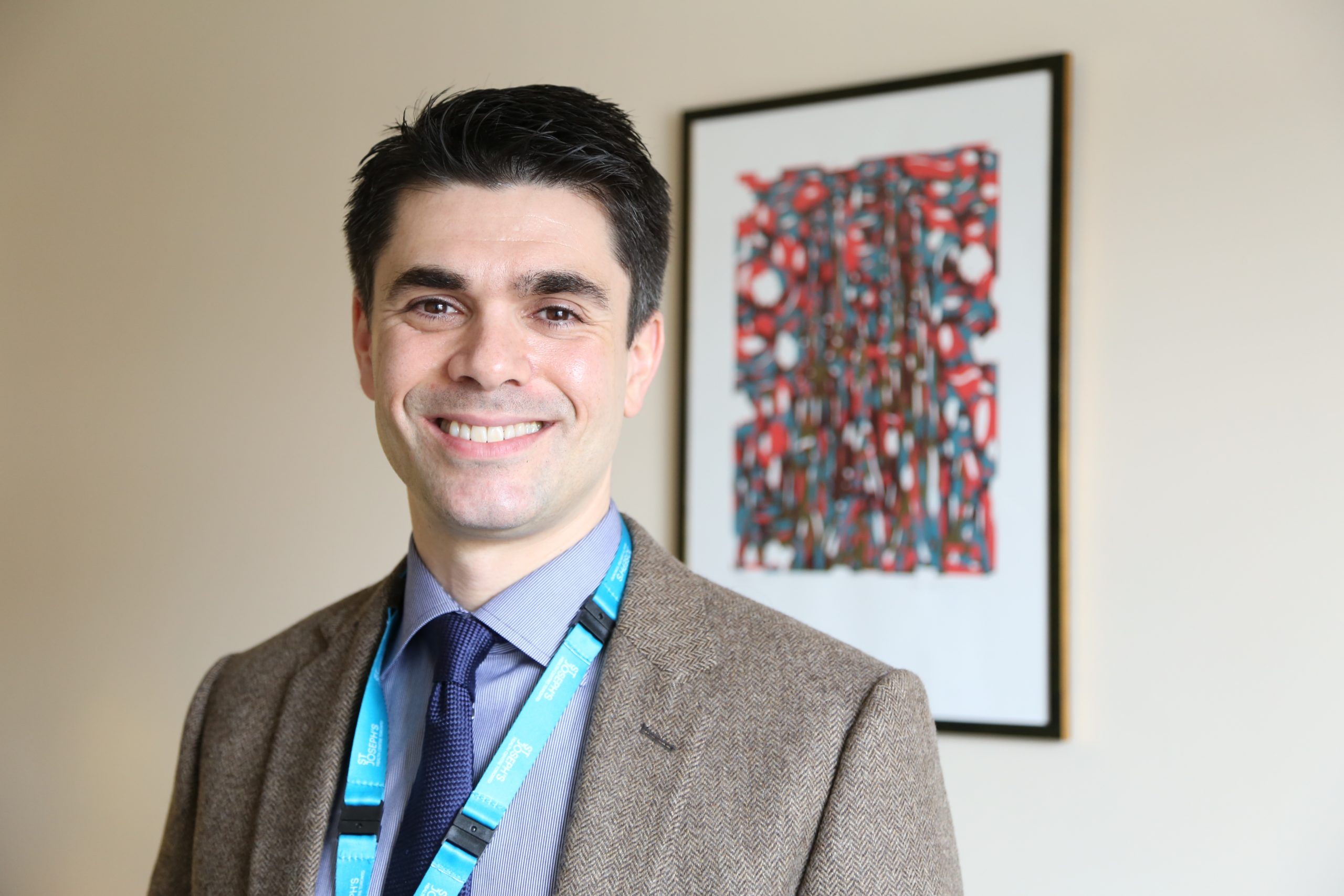Why ethics is a key part of healthcare

 Every day patients and healthcare providers are faced with tough questions: what’s the best treatment? What if a patient wants a treatment that probably won’t work? What if a family member disagrees with a patient’s wishes? When people are unable to come to a compromise, ethics often gets involved. Ethicists work as part of healthcare teams and have specific training in ethical decision-making and the ethical issues related to human life and healthcare. Their job is to support patients, families and healthcare providers to identify and resolve ethical issues that arise in a clinical setting.
Every day patients and healthcare providers are faced with tough questions: what’s the best treatment? What if a patient wants a treatment that probably won’t work? What if a family member disagrees with a patient’s wishes? When people are unable to come to a compromise, ethics often gets involved. Ethicists work as part of healthcare teams and have specific training in ethical decision-making and the ethical issues related to human life and healthcare. Their job is to support patients, families and healthcare providers to identify and resolve ethical issues that arise in a clinical setting.
This National Health Ethics Week, we wanted to highlight the work done by our ethicists and learn a bit more about what goes into making these decisions. To do that, we caught up with Dr. Michael Szego, Acting Director of the Centre for Clinical Ethics.
Can you provide some background on the Centre for Clinical Ethics?
The Centre for Clinical Ethics was founded in 1982 by the Sisters of St. Joseph and was one of the first ethics services in Canada. We are a joint venture between St. Joe’s, St. Michael’s Hospital and Providence Healthcare, and one of the unique features of the Centre that not everyone knows about is that we have eight staff members and we’re embedded in ten different healthcare organizations. Our partner healthcare organizations specialize in acute care (from community to academic health centres), mental health, long term care, and rehab – so we’re in a lot of different types of environments.
As an ethicist, what do you do?
Every day is different – I may be involved in a clinical consultation, working on a hospital policy, providing education to staff/physicians/students, or conducting a research ethics review (I am a member of a research ethics board responsible for reviewing research involving human subjects). I carry a pager so if there is a patient care issue that needs to be attended to, that becomes my top priority. For clinical consults, I often meet with patients and their family to discuss things like complicated discharge, withdrawal of life support – some sort of an issue where people disagree about the right course of action.
While a lot of healthcare works in silos, one of the really fun parts of my job is that I get to do a variety of different activities that feed into each other – a clinical consult could lead to policy development, which could lead to education, research, and scholarship. For example, a couple of years ago through a clinical consult we realized our hospital policy on reporting cases of suspected elder abuse had some gaps in it. As a result, we rewrote the policy, and then designed an educational module around elder abuse for the Royal College of Physicians and Surgeons.
When you talk to a patient, what kind of conversation is there/consideration?
I really see my role as helping to guide the decision-making process – there are very few circumstances where I go in and say, “The answer is X.” When speaking with a patient/family I can help identify the information needed to make a treatment decision, explore the ethical implications of treatment decisions and discuss the benefits and burdens of different treatment options. I often start by exploring what the patient would want in the given circumstance; in many cases the patient can be forgotten in all the hubbub so a lot of my job is talking to the patient or their substitute decision-maker to help identify the patient’s wishes or values, and then using the lens of the patient and their values to help inform an ethically defensible course of action.
When I first meet a patient l explain that I get called when different parties are struggling with what to do and that I’m there to help guide the process – I’m not here to give them an answer, but to help work out the problem with them; to think with them, not for them. And I would say the same goes for healthcare providers – what I’m there to do is, using ethical principles, help guide the decision-making process. The reason I’m called is because the right course of action is not obvious. I am very aware that while I have “ethics” on my badge, ethics is something that every healthcare provider does every single day. However, when people disagree about the right course of action, having an independent opinion can sometimes be helpful.
What made you get into ethics?
My academic background is somewhat unique for an ethicist. My Doctorate is in molecular genetics. However, while studying mouse models of congenital forms of blindness, I began to feel like the scientist job I had been training for was a little too narrow in scope for me. Then I heard a bioethicist speak, and I was drawn to the idea of using problem solving skills to help patients, develop policy, and the research and education opportunities available in bioethics. That bioethicist mentored me and I worked with him for about a year in a volunteer capacity while finishing my PhD. Following my Doctorate, I went back to school and did a Masters and Fellowship in ethics. I have been at St. Joe’s for over five years and feel so privileged to be working with our patients, families, and members of the healthcare team.
